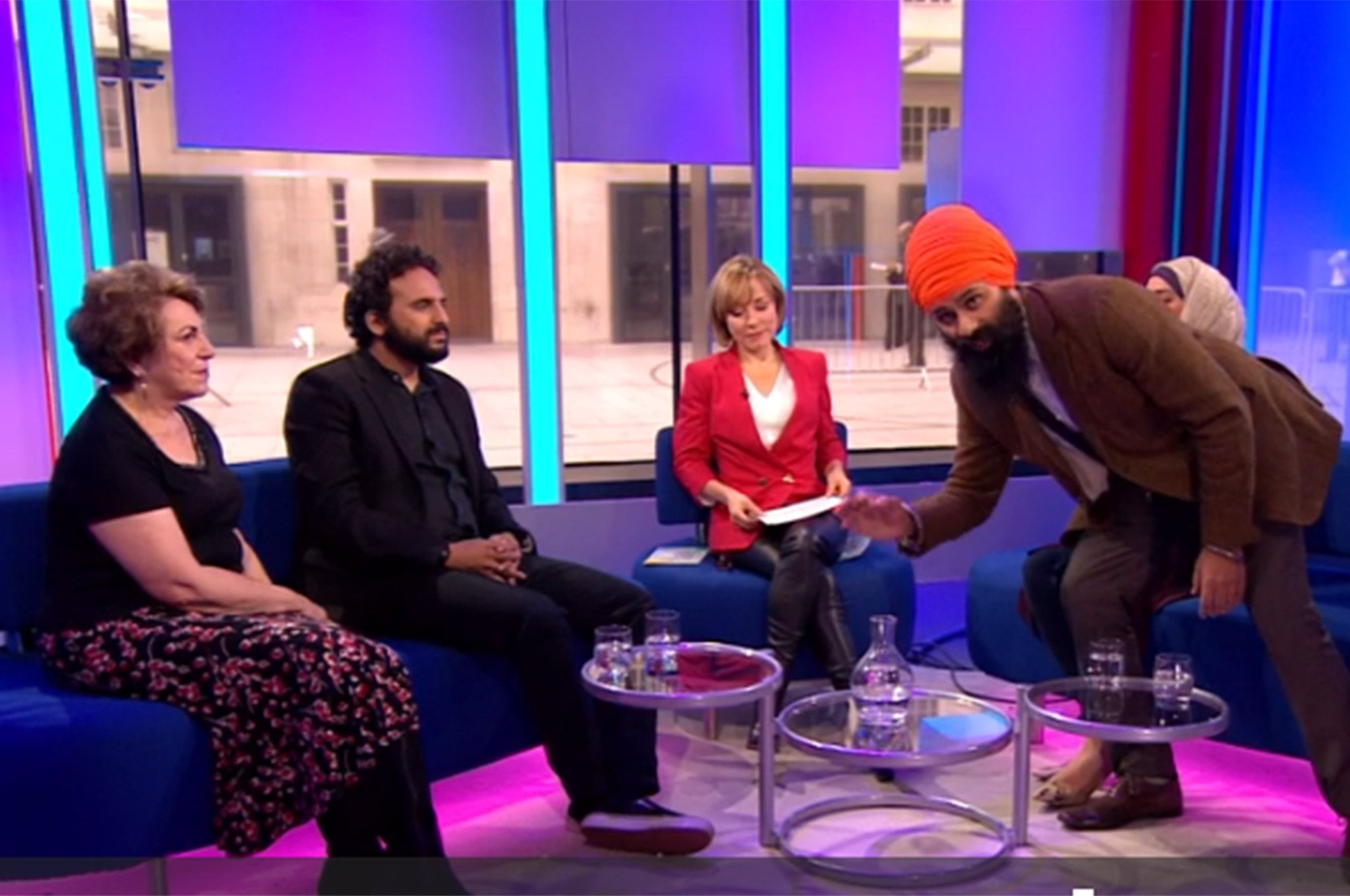Why I protested the deaths of innocent Sikh protesters on the BBC
I wouldn't have been able to live with myself if I hadn't used my platform to highlight what is happening right now in India

When I was invited to be a panelist on Sunday Morning Live, 75,000 people had already signed a petition urging the BBC to cover the recent deaths of Sikhs at the hands of policemen in India's Punjab region. I was glad to have been invited onto the show, but I knew that I couldn't face myself afterwards if I didn't speak out.
“Why take a risk that could damage relations between Sikhs and the BBC?” you may ask. What I did was disruptive, and certainly irritated Sian Williams, who was presenting the show. I know this, but I can explain.
Tens of thousands of peaceful protesters took to the streets of Punjab last week. They were protesting a series of politically motivated desecrations that had taken place across the region, in which Sikhism's most sacred scriptures, called Sri Guru Granth Sahib Ji, had been torn up and discovered by locals. For Sikhs, they are the living embodiment of God on earth.
All the protesters were trying to do was push the police into doing their jobs, and investigate the desecrations. Yet during the protests two Sikhs were shot dead, and dozens more injured. The policemen who were responsible were following the orders of top government officials to use bullets, water cannons and batons to disperse the crowds.
Despite camera and mobile phone footage showing the Punjab Police damaging vehicles and using violence towards unarmed protesters, Indian and Western press failed to question the authorities' narrative that they only used “minimal force”.
Most Indian newspapers have been referring to protesters as “radicals”. Others mention “clashes” and “exchange of gunfire” to justify the killings, without backing this up with witness statements or footage. Like many Sikhs, I want this news reported properly. We want Indian authorities to be held accountable by an unbiased press.
Indians are generally respectful, God-fearing people. They wouldn’t dream of ripping apart anyone's sacred texts. However, these events are taking place at the same time that the Sikh movement for equal rights and freedom in India is being suppressed. If there is a proper investigation into the desecrations that took place, my hope is that we can find out who was responsible. For there are powerful figures in India who would definitely benefit from Sikhs protesting in large numbers, as both visible targets and distractions from the bigger political issues at hand.
So I hope this explains why I protested on the BBC. It wasn’t planned and I didn’t expect the huge response that followed, or the emergence of #SikhLivesMatter. Yes, I may have disrupted the show, but I don't regret it at all.
Jagmeet Singh is an Educator of the Sikh faith for Basics of Sikhi
Join our commenting forum
Join thought-provoking conversations, follow other Independent readers and see their replies
Comments
Bookmark popover
Removed from bookmarks